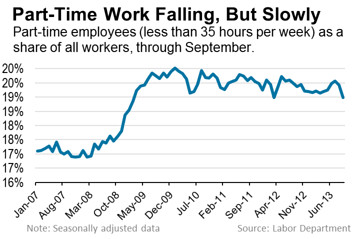Sorry, I used a double negative. I agree with your last sentence in that post, I do not disagree with it. Totally agree that obesity and end of life care are huge issues.
I also agree that health care does not follow normal supply and demand rules. I don't really think it is possible for health care consumers to be meaningful participants in a fair market. the knowledge and power imbalance between the consumer and the provider is insurmountable. There has to be some kind of mediating force. In the US, that is supposed to be the insurance company, but it's a badly broken system and Obamacare is not going to improve it (at least as far as cost control). In many other countries, the government has taken over the role of mediating force. Some successfully, some less so.
Responding to CH and 2&2: because I think the market forces here are so unmanageable on an individual level, I have doubts that pushing HSAs and HDCPs will meaningfully affect health care costs. I think these kinds of things will induce people to skimp on preventive care, and do nothing to address overspending on end of life care, for example.
But HSAs cover preventive at 100%. And nothing will fix end of life other than death panels. But there's a ton of commercial U65 spend it will impact. And thats where we need to focus on.

